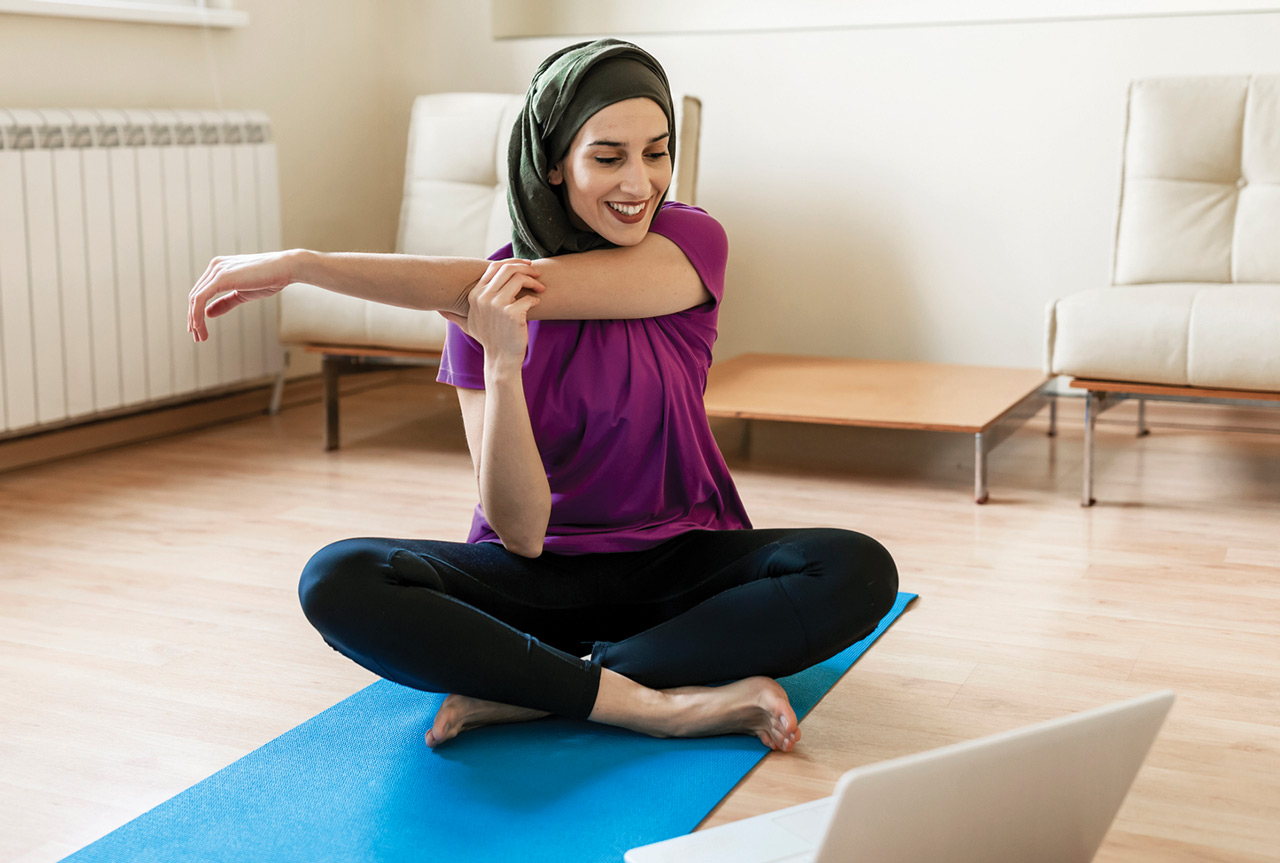At Penn Medicine Princeton House Behavioral Health (PHBH), an additional form of supplemental treatment has been found to help ease the symptoms of both conditions
— yoga therapy.
“We utilize yoga as a way to help people feel more connected and present in their bodies, regulate their nervous system through breath work, and relieve stress through movement,” says Kate Diviaio, MSW, LCSW, RYT, a Senior Primary Therapist and Yoga Teacher with PHBH. “It’s a great complement to traditional group and individual therapy.”
Promoting Overall Wellness
Yoga therapy is offered as an elective class in groups of up to 10 people, as part of PHBH’s outpatient programs for adults and adolescents. Presently, due to the COVID-19 pandemic, classes are offered through telehealth. Each session lasts approximately one hour and may include breathing exercises, physical postures, meditation and guided imagery. The combination helps promote overall wellness by reducing tension, slowing the heart rate, promoting mindfulness and calming the mind.
Sessions begin with a check-in with the participants to see how they are feeling emotionally and physically, so the class can be tailored to meet their present needs. “After an often intense day of therapy, where you are focused on sharing through talking and listening, an opportunity to step back from that and quietly get back in touch with yourself can be extremely important and grounding,” says Diviaio. “This connection with our mind and body can help with depression, anxiety, trauma and even eating disorders, because it helps you realize you can regulate yourself through this connection and feel more comfortable in your own body.”
While props such as blocks, straps and rolls are frequently used during in-person sessions, when doing telehealth yoga therapy, participants are encouraged to do simple breathing exercises and postures at home, even if they do not have props.
“Just the simple act of lying on your back on the floor, with the back of your legs up against the wall for 5 or 10 minutes before you go to sleep at night can reduce anxiety and help with insomnia,” says Diviaio. “And improved sleep means reduced emotional vulnerability for the following day.”
To find out more about Princeton House Behavioral Health mental health and addiction services, call 888.437.1610 or visit www.princetonhouse.org.
Article as seen in the September/October 2020 issue of Princeton Health.



